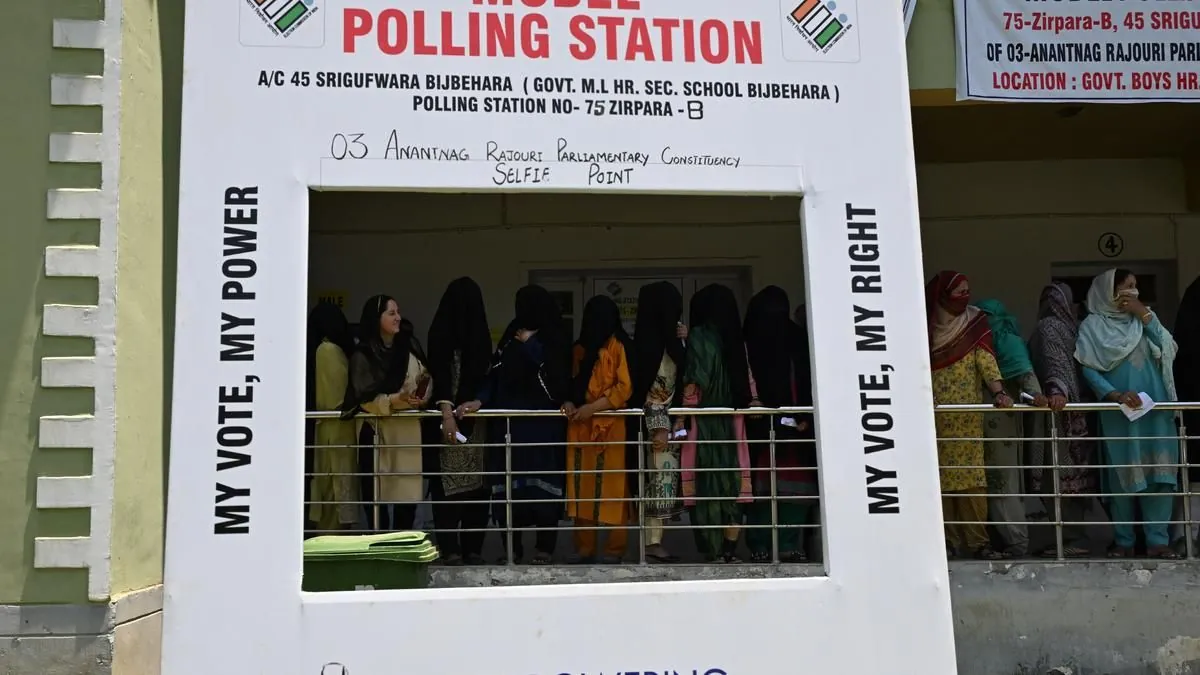In a recent local government election in Indian-controlled Kashmir, the National Conference (NC), the region's largest pro-India political party, emerged victorious. This election, held approximately 5 years after the controversial 2019 decision to revoke Kashmir's special status, is being interpreted as a referendum on that pivotal move by Prime Minister Narendra Modi's government.
The NC secured 41 seats, primarily in the Kashmir Valley, which has been the epicenter of anti-India sentiment since the Kashmir conflict began in 1947. This region, known for its breathtaking natural beauty and tourism potential, has been a focal point of the ongoing dispute between India and Pakistan.
Modi's Bharatiya Janata Party (BJP), founded in 1980, managed to win 27 seats, mostly in the Hindu-majority areas of Jammu. The Indian National Congress, one of India's oldest political parties and currently in alliance with the NC, secured 6 constituencies.
This election outcome reflects the complex political landscape of Jammu and Kashmir, which was divided into two union territories in 2019. The region's unique status stems from the Instrument of Accession signed by Maharaja Hari Singh in 1947, leading to decades of conflict and the establishment of the Line of Control (LoC) dividing Kashmir between India and Pakistan.
The Kashmir Valley, home to the summer capital Srinagar, has been at the heart of the anti-India rebellion. It's not only a political hotspot but also a cultural treasure, famous for its Mughal Gardens (a UNESCO World Heritage Site), the picturesque Dal Lake with its iconic houseboats, and renowned handicrafts like carpets and shawls.
While the local government being elected has limited powers, the results are significant in the context of Kashmir's turbulent history. The region has witnessed numerous challenges, including the Kashmiri Pandit exodus in the 1990s and ongoing border tensions, with the Siachen Glacier being the highest battleground on Earth.
The election also highlights the diverse linguistic and religious fabric of Jammu and Kashmir, where Urdu, English, and Kashmiri are official languages. This diversity is reflected in sites like the Amarnath Cave, an important Hindu shrine, coexisting with Islamic and Buddhist influences.
As Kashmir continues to navigate its complex political reality, issues like water sharing (regulated by the Indus Waters Treaty) and regional development remain crucial. The election results may influence future discussions on Kashmir's status and its relationship with the central government in New Delhi.
"This election result is a clear message that the people of Kashmir reject the unilateral changes imposed in 2019. We will continue to fight for the restoration of our special status and the rights of our people."
The outcome of this election, while focused on local governance, carries broader implications for the region's political future and its relationship with the rest of India. As Kashmir moves forward, balancing local aspirations with national interests will remain a significant challenge for all stakeholders involved.
